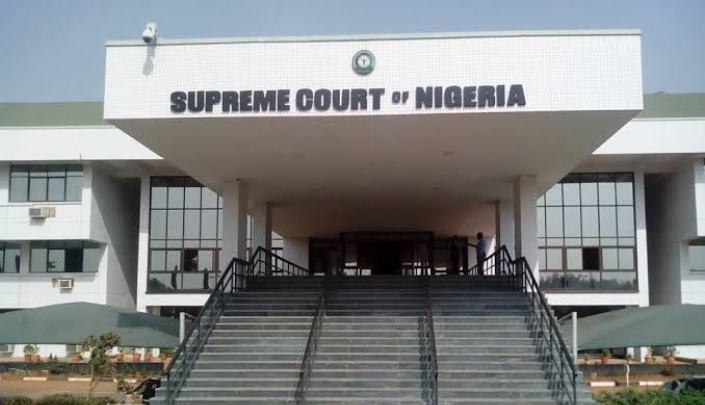The Supreme Court on Wednesday temporary lifted the ban on the old naira notes.
The CBN had earlier fixed February 10 as the last day the old notes of N200, N500, and N1000 will be the legal tender
This development has created serious chaos across the country with businesses shutting down over the scarcity of the new and the old notes.
Kaduna, Kogi and Zamfara state governments had approached the Supreme Court asking it to stop the CBN polo it due to the difficulties it subjected the general public into.
A seven-member panel led by Justice John Okoro, halted the move in a ruling in an exparte application brought by three northern states of Kaduna, Kogi and Zamfara.
The three states had specifically applied for an order of Interim Injunction restraining “the federal government through the Central Bank of Nigeria (CBN) or the commercial banks from suspending or determining or ending on Feb. 10, the time frame with which the now older version of the 200, 500 and 1,000 denomination of the naira may no longer be legal tender pending the hearing and determination of their motion on notice for interlocutory injunction”.
Delivering ruling in the motion, Okoro, held that after a careful consideration of the motion exparte this application is granted as prayed.
“An order of Interim Injunction restraining the federal government through the Central Bank of Nigeria (CBN) or the commercial banks from suspending or determining or ending on Feb. 10,, the time frame with which the now older version of the 200, 500 and 1,000 denomination of the naira may no longer be legal tender pending the hearing and determination of their motion on notice for interlocutory injunction”.
He accordingly adjourned until Feb. 15, for hearing of the main suit.
Moving the application on Wednesday, counsel to the applicants, Mr A. I. Mustapha, SAN, urged the apex court to grant the application in the interest of justice and the well-being of Nigeria.
He stated that the policy of the government has led to an “excruciating situation that is almost leading to anarchy in the land “.
While he referred to a Central Bank of Nigeria’s (CBN) statistics which put the number of people who don’t have bank accounts at over 60 percent, Mustapha lamented that the few Nigerians with bank accounts can’t even access their monies from the bank as a result of the policy.
The senior lawyer further argued that unless the Supreme Court intervenes the situation will lead to anarchy because most banks are already closing operations.









